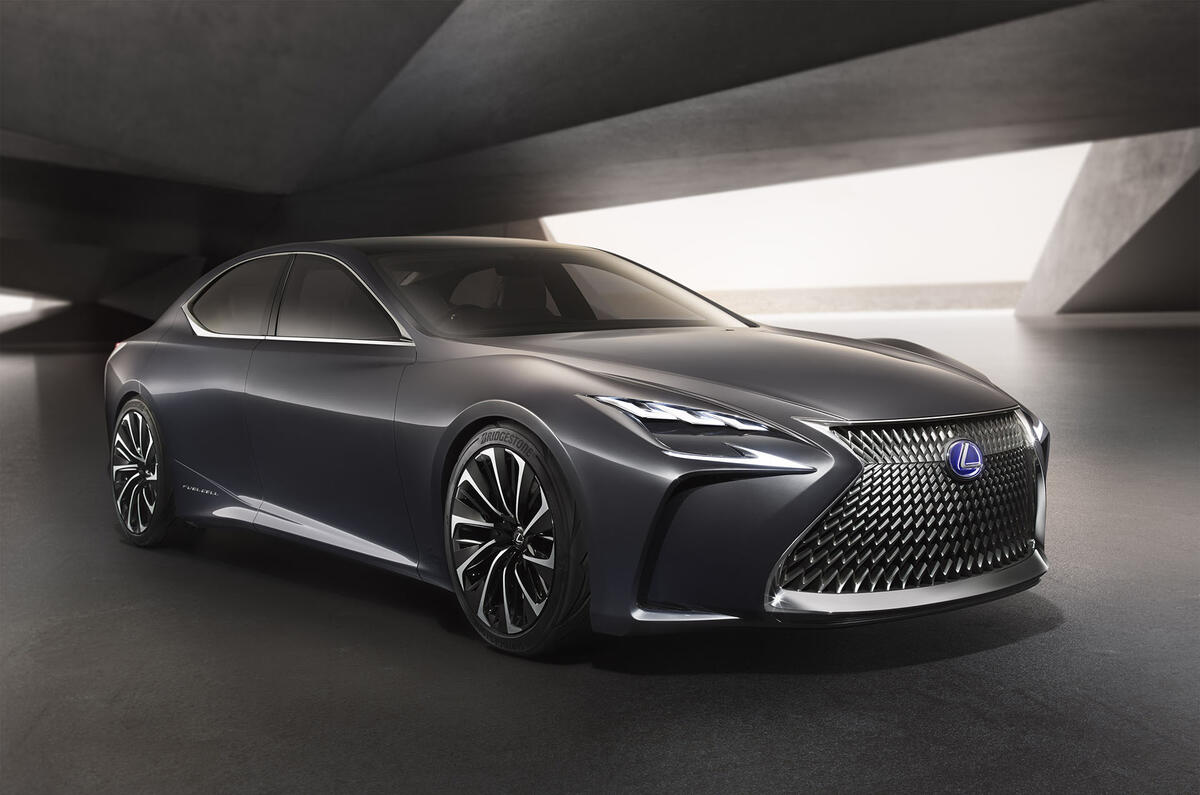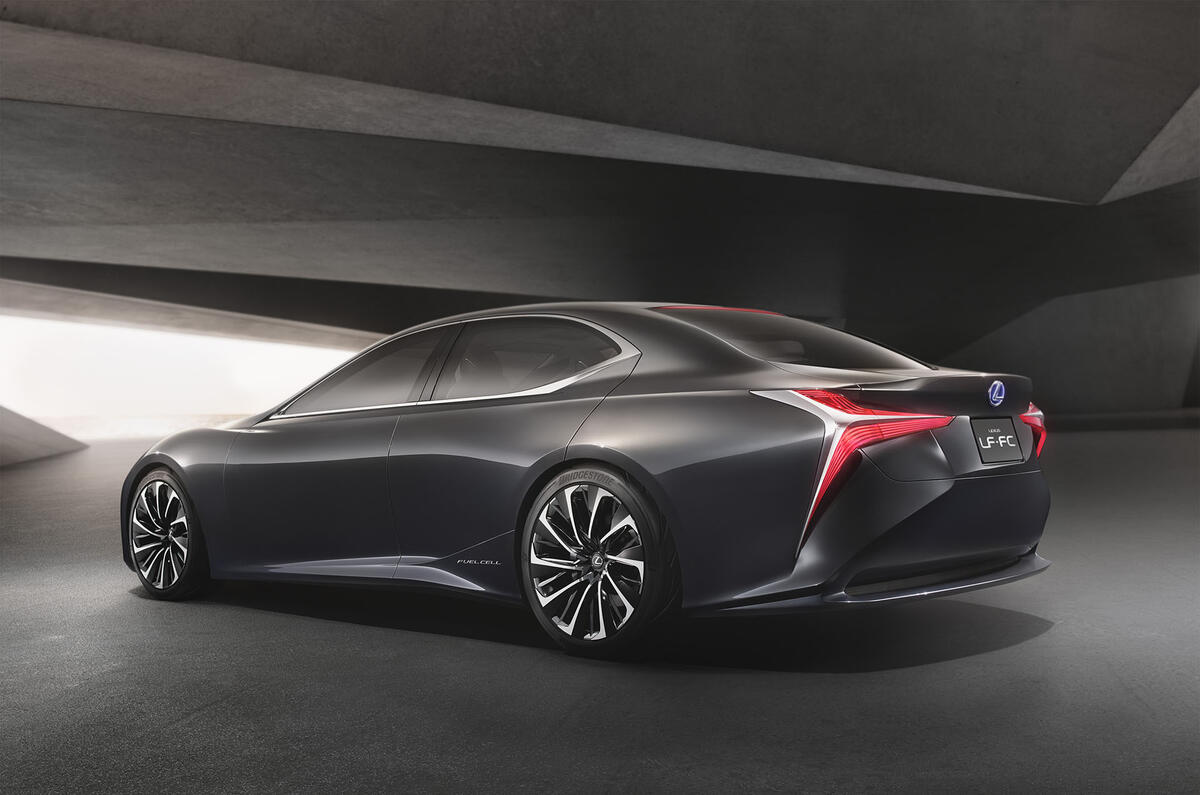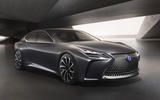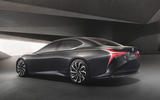A new range-topping Lexus LS saloon will be launched at the Detroit motor show in January before going on sale in 2018.
It'll then be launched with the option of hydrogen power in 2019, as the firm looks to capitalise on the leadership in fuel cell technology established by the Toyota Mirai of its parent company.
Lexus’s rival to the Audi A8, BMW 7 Series, Jaguar XJ and Mercedes-Benz S-Class will be based heavily on the LF-FC concept car that was unveiled at the Tokyo motor show in 2015. The LS is also expected to be sold with the choice of a V8 hybrid powertrain producing around 535bhp.
Lexus Europe boss Alain Uyttenhoven said: “We know how to make fuel cells and the only challenge is how to package a fuel cell in a car that also needs a certain level of performance.” He did not confirm plans for the LS, however. “Premium buyers have certain expectations. For refinement, fuel cell is ideal, but we must also do some work to demonstrate the right levels of performance.”
The hydrogen-powered LF-FC concept had one electric motor driving the rear wheels, with electricity being sent to two in-wheel electric motors at the front.
Its drive system allowed it to precisely distribute torque to all four wheels, resulting in “exceptional dynamic handling and superior road stability”.
In addition, placing the power control unit at the front and hydrogen storage tanks in a ‘T’ configuration were said to allow for “optimal” weight distribution for a sports saloon.
The LF-FC also had two driving modes. In Cruising mode, the fuel cell stack drew on hydrogen and created electricity to drive the motor and recharge the battery. In Acceleration mode, both the battery and the fuel cell stack powered the car’s main electric motor and its in-wheel electric motors for maximum power.
The new LS - which is expected to go on sale with conventional powertrains in 2018 - is expected to be a technological showpiece for Lexus, with several autonomous driving functions, a new-look interior that includes front and rear touchscreens and features such as a gesture-controlled infotainment system. It will be based on the new Lexus GA-L platform, which will first be used on the new Lexus LC500 and LC500h sports cars.
The spread of hydrogen fuel stations is expected to grow exponentially by 2019, but reports suggest Lexus has still predicted that hydrogen-powered versions of the LS will sell “in hundreds, not thousands” and sales will be targeted in large cities such as London, Los Angeles, Paris and Tokyo, where diesel is expected to be outlawed by 2020.







Join the debate
Add your comment
Apart from the hydrogen
sdfsdfsd
This is what I do. >>>>>>>>> MsTrends3.Tk
sdfsdfsd
This is what I do. >>>>>>>>> MsTrends3.Tk